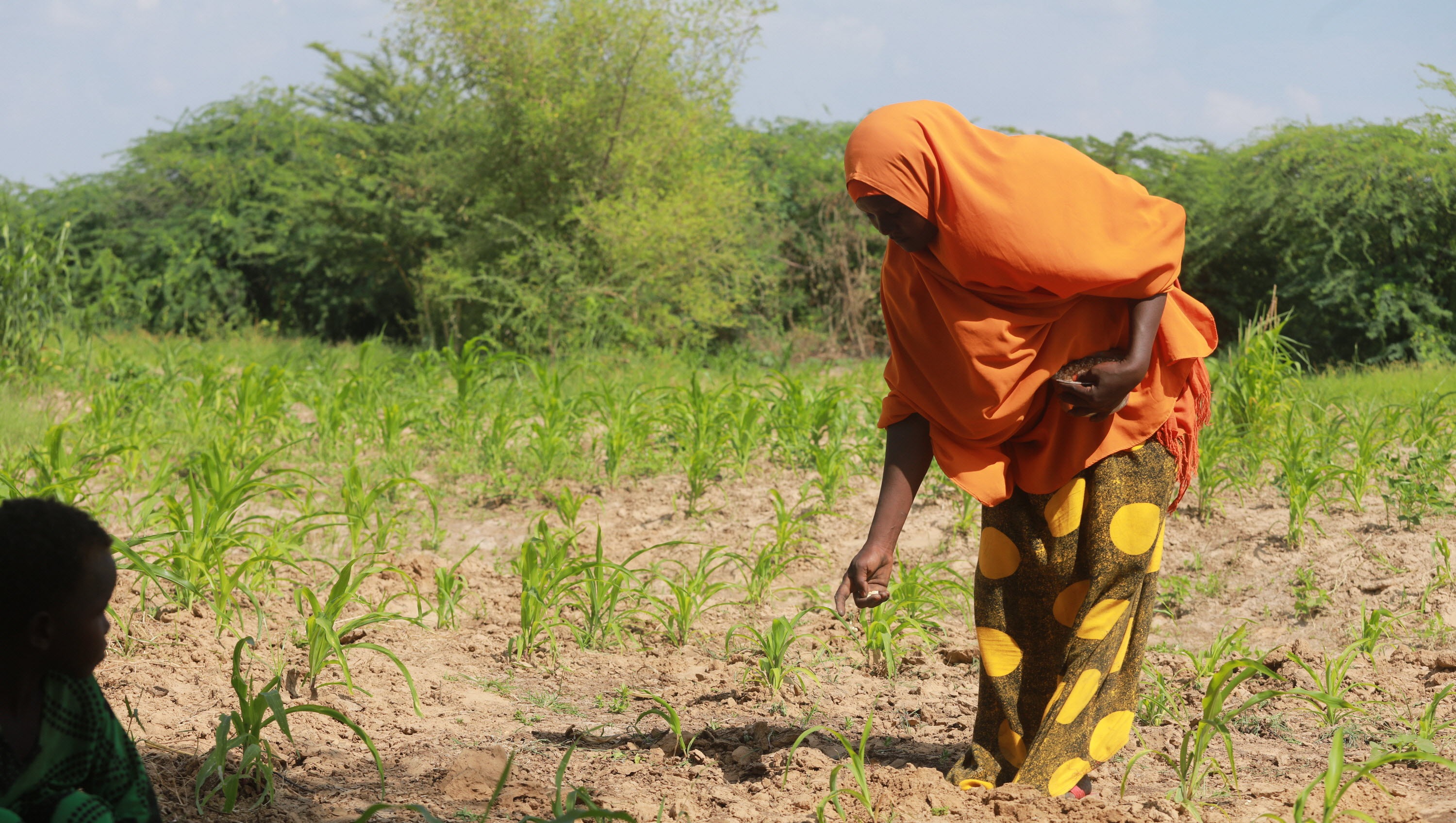Agricultural aid: a game changer in tackling hunger crises
FAO Director-General calls for increased investments in agriculture and resilient agrifood systems to prevent famine in the run-up to the World Food Day

A farmer plants seeds on her farm at Dharkeenley village, Somalia.
©FAO/Arete/Ismail Taxta
Rome - The alarming signs of growing acute food insecurity should make us rethink the way we tackle hunger crises by addressing the root causes rather than just treating ad hoc symptoms of hunger, Director-General of the Food and Agriculture Organization of the United Nations (FAO) QU Dongyu said today. He spoke at a special side event looking at how to change the humanitarian game plan to better meet people’s needs and priorities and reverse the march of hunger across the planet. The event was organised ahead of the World Food Day which will be officially celebrated on 14 October this year.
Acute food insecurity is spreading and intensifying as multiple global and local shocks overlap, jeopardising achieving the Sustainable Development Goals (SDG) with only 7 planting seasons left to turn the tide, Qu warned.
According to the latest survey, up to 222 million people are experiencing high acute food insecurity this year – one in five of whom have so little to eat that they face an immediate threat of severe malnourishment and death. A further nearly 1 million people will effectively be in famine-like conditions without urgent humanitarian assistance in five countries: Afghanistan, Ethiopia, Somalia, South Sudan and Yemen.
Although the situation is dire, there is still time to turn it around and bring back from the brink of hunger those who have been left behind, the Director-General said pointing out that investments in agriculture and in resilient agrifood systems can make the difference.
Despite an increase in overall humanitarian response, yet only 8 percent of humanitarian funding is going towards urgent time-sensitive agricultural assistance in emergencies that is essential for people’s survival, Qu noted stressing that at least two out of every three people experiencing acute food insecurity today are rural people, including farmers, herders, fishers and foresters. And they are particularly exposed to the impacts of extreme weather or violent conflict.
“Clearly, a new approach is needed to halt and sustainably reverse these hunger trends. It is time for a rethink and repurpose. Prioritization, programming, advocacy and funding allocations should be evidence-based and guided by people’s needs and priorities,” the Director-General added.
In the middle of crisis, agriculture offers solutions, he said, pointing to the need for channelling more resources and funds to strengthen rural people’s resilience and help them preserve and improve their agricultural livelihoods to provide for their families.
An efficient response will require a focused and collective effort from all partners and stakeholders – the UN system, governments and local organizations, the private sector, civil society and academia, Qu underlined.
The event also saw the participation of Rein Paulsen, Director of FAO Office of Emergencies and Resilience; Aryn Baker, Senior International Correspondent of Time Magazine; Mohanna Eljabaly, Associate Executive Director for Compliance and Development of Yemen Family Care Association (YFCA); Ramesh Rajasingham, Director of Coordination of UN Office for the Coordination of Humanitarian Affairs; and Danielle Mutone-Smith, Managing Director of USAID’s Bureau for Humanitarian Assistance.
The participants agreed that agriculture should be treated as a frontline humanitarian response and one of the most cost-effective long-term solutions. Supporting people and their livelihoods, responding to their needs and priorities before the peak of a crisis can effectively prevent death and famine. The participants also touched on the need to scale-up investments in local food production and farmers’ resilience to future shocks.
Contact
Irina Utkina FAO News and Media (Rome) +39657052542 [email protected]
FAO News and Media (+39) 06 570 53625 [email protected]
